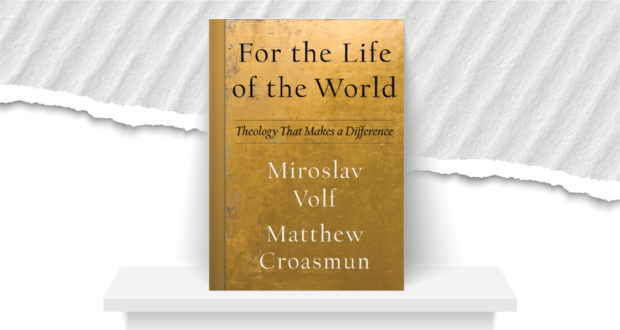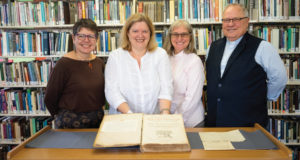Miroslav Volf and Matthew Croasmun’s latest book may challenge readers in the church to think deeply about what is theology in today’s Christian context and what role it plays in shaping future Christians but, as Nick Mattiske writes, their work is timely and urgent.
For those outside the church, if they even know what theology is, theology is as redundant as phrenology or the telegraph, or at least as specialised and impenetrable as quantum theory. Even those within the church can see theology as somewhat irrelevant. Ministers, alarmingly, are often too busy to read the stuff, or favour pop psychology or business management books instead.
There are a number of reasons for theology’s perceived lack of relevance, say Miroslav Volf and Matthew Croasmun, including the decline of mainstream Christianity. When they say “theology” they mean “academic theology”, and indeed part of the problem is that theology has retreated into the university where it has become a victim of postmodern relativism (on the progressive side) or (on the conservative side) nostalgia and the interminable restating of old, abstract doctrines.
The hegemony of the sciences too has meant that academic theology has become descriptive rather prescriptive, afraid of the word “should”. Subsequently, the authors say memorably, theologians “stutter” over theology’s purpose.
Volf and Croasmun aim to combat this with their “manifesto”, which argues that God doesn’t need theology; rather, theology is about us. Of course this is provocative, as the very meaning of the word suggests theology is about God. Volf and Croasmun fudge this slightly by suggesting that while God is theology’s subject, its purpose is the betterment of humanity (in the same way that agronomy’s subject is farming but its purpose is feeding humans).
If theology is about us, we may assume its main purpose is to articulate our spiritual rescue, but Volf and Croasmun ask, what have we been rescued for? Christian life is not just about repentance and accepting Christ so we are allowed into heaven. That would suggest merely an individualistic faith, and God’s rescue of a minority. Rather, the point of theology is that God sends Jesus so that all people can live well, starting in the here and now. Volf and Croasmun describe this as human “flourishing” (a term Volf has used extensively elsewhere), and it is the central concern of theologians across the ages.
Flourishing here is not in the worldly sense of wealth or fame. This may seem obvious, but churches can be infected with such thinking in subtle ways—just look at the books dedicated to how Jesus’ successful training of his disciples can be used by business leaders (despite the fact that his disciples constantly misunderstood him and ran away when he was arrested). Neither is it just another version of postmodern ethics. Rather, flourishing is encompassed by the biblical phrase “the kingdom of God”, which involves a vision of the way things should be more than just the critique of injustices.
For the authors, this is obvious in Pauline theology, where Paul argues not only for a theology of God’s grace, but also for peace and joy as the goals of the Christian life, meaning that Pauline theology travels into the weekdays, an exercise in practical theology rather than historical theology. Paradoxically, working for peace and joy may mean peace and joy are challenged in our own lives, but this is a part of the now-and-not-yet nature of the kingdom, and the Christian focus on the other at our own expense.
In Paul’s theology, articulating the theology and living it out by trial and error go hand-in-hand. Volf and Croasmun argue for the importance of theology and theologians’ engagement with life—an outward focus, in other words. Unfortunately their language could be less academic, meaning that other theologians might need to do as they say rather than as they do. Nevertheless, their call is a timely and urgent one.
Nick Mattiske
For the Life of the World: Theology that Makes a Difference
Authors: Miroslav Volf and Matthew Croasmun
Publisher: Brazos Press
2019
 JourneyOnline
JourneyOnline







